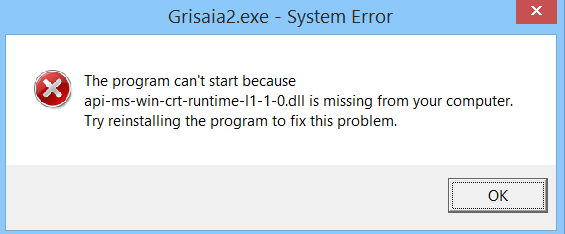The Methods for Download Api-ms-win-crt-runtime-l1-1-0.dll
When encountering a missing or corrupted api-ms-win-crt-runtime-l1-1-0.dll error, it is crucial to obtain a reliable and legitimate version of the DLL file to resolve the issue. Here are some methods for downloading the api-ms-win-crt-runtime-l1-1-0.dll file:
Microsoft Visual C++ Redistributable Package: The recommended method is to download and install the appropriate version of the Microsoft Visual C++ Redistributable package. This package includes the necessary DLL files, including api-ms-win-crt-runtime-l1-1-0.dll, required by many applications. Visit the official Microsoft website or the software vendor’s site to download the redistributable package compatible with your system architecture 32-bit or 64-bit.
Windows Update: Keeping your operating system up to date can help resolve DLL errors. Run Windows Update to ensure that you have installed the latest updates, including critical updates and service packs. Sometimes, missing DLL files are included in these updates.

System File Checker SFC: The System File Checker is a built-in Windows utility that scans for and restores corrupted system files. Open a command prompt with administrative privileges and type sfc /scannow without quotes. Press Enter to initiate the scan. If the api-ms-win-crt-runtime-l1-1-0.dll file is missing or corrupted, the SFC tool will attempt to restore it.
DLL File Download Websites: While it is generally recommended to obtain DLL files from official and trusted sources, there are third-party DLL download websites available. Exercise caution when using these websites, as they may contain outdated, modified, or malicious files. Ensure that you choose a reputable website and verify the file integrity using antivirus software before proceeding api-ms-win-crt-runtime-l1-1-0.dll.
Contact Software Vendor or Technical Support: If the above methods do not resolve the issue or you are unsure about downloading DLL files, it is advisable to contact the software vendor or seek assistance from technical support. They can provide guidance specific to your application and system configuration and may have alternative solutions to resolve the DLL error.
Important Considerations:
- Be cautious of downloading DLL files from unofficial sources, as they may pose a security risk or contain malware.
- Always ensure that you download the correct version of the DLL file, matching your system architecture 32-bit or 64-bit.
- Perform a thorough antivirus scan on any downloaded files to ensure they are safe.
- Avoid manually placing DLL files in system directories unless explicitly instructed by trusted sources or technical support.
- Remember, resolving DLL errors by downloading the correct version of the DLL file is just one part of the troubleshooting process. It is essential to identify and address the underlying cause of the DLL error to ensure a stable and reliable system performance.
